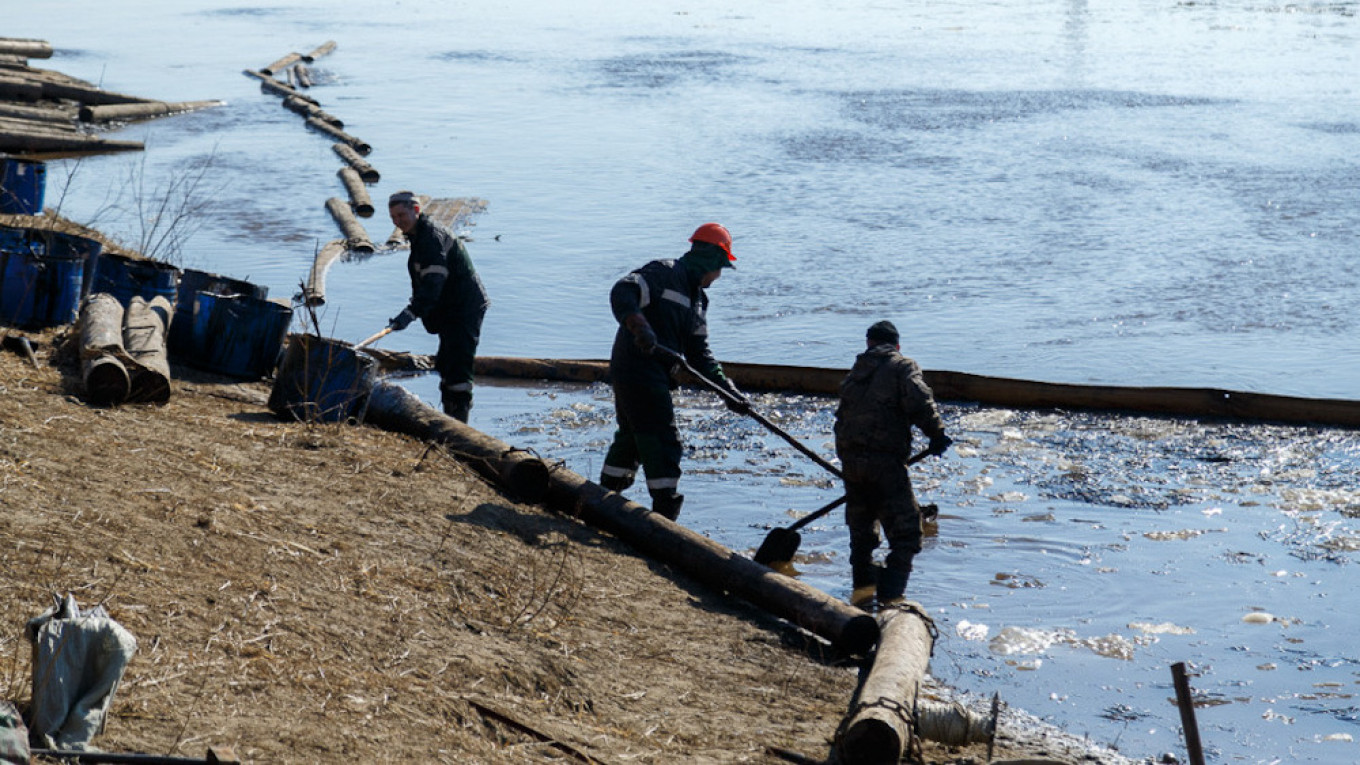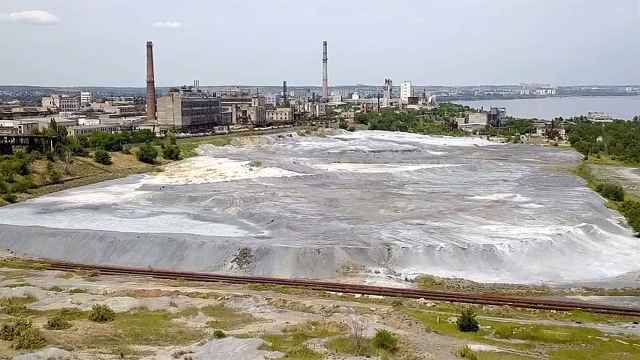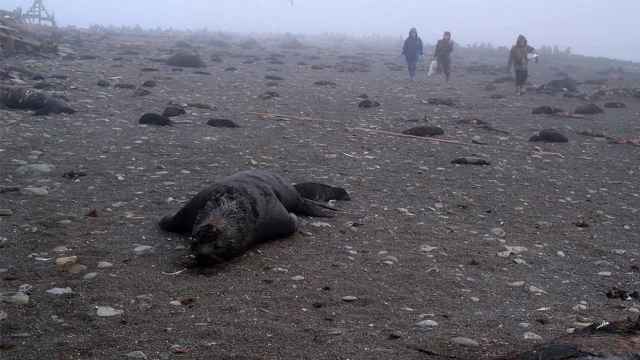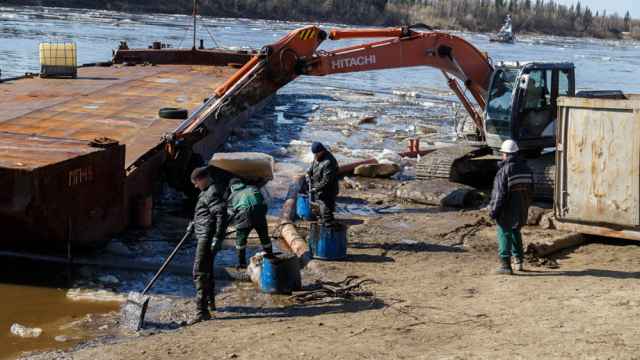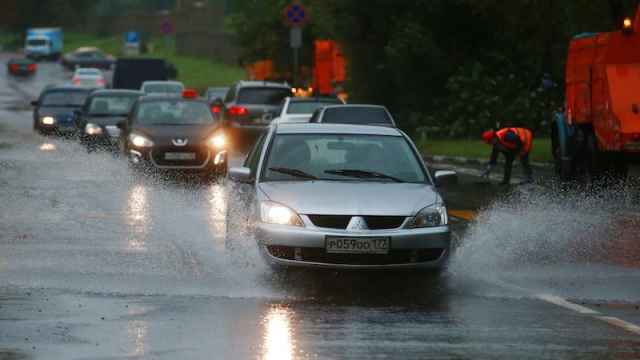Authorities in the northern Russian republic of Komi have declared an emergency this week after roughly seven tons of crude oil spilled into local soil and waterways, threatening the area’s ecosystems and populated areas.
The spill was likely the result of an accident at a pipeline operated by Russian oil producer Lukoil, officials have determined. It comes nearly a year after a leak from a fuel storage facility operated by Russian mining giant Nornickel led to the worst Arctic oil spill in history.
According to local media, the leak came from a pipeline that connects the Oshskoye oil field in the neighboring Nenets autonomous district to a nearby Lukoil storage facility. The oil reached the Kolva river and traveled downstream to Usinsk, a town of 45,000 people located 2,000 kilometers northeast of Moscow.
On Thursday, Lukoil officials said that around 150 employees were working to contain the spill. Initial estimates said roughly four tons of crude oil contaminated 1.27 hectares of ground around the pipeline, while three tons entered the Kolva river and moved downstream to populated areas.
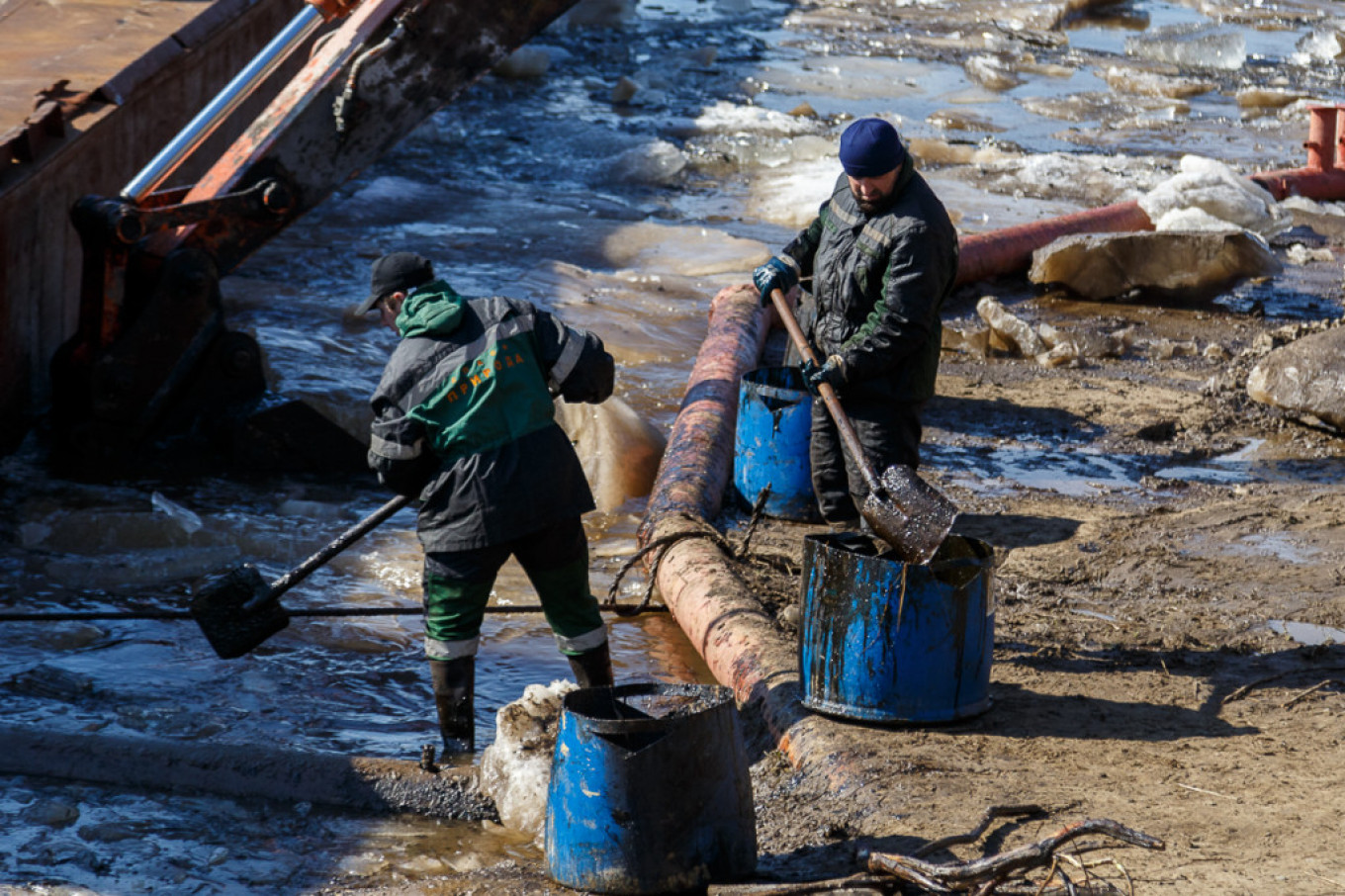
While oil booms are usually used to contain oil spills on water, there is too much moving ice on the Kolva at this time of year to use that technique, environmental experts said.
Activists claim that Lukoil is hiding the real magnitude of yet another disastrous oil spill in Russia’s Arctic. Locals had reportedly noticed dead fish in the river on May 10, before the accident was officially confirmed.
“Lukoil probably concealed the real time and scale of the accident, as they’ve done before,” activists from the local Pechora Rescue Committee NGO said Thursday.
“It’s obvious that most of the oil is moving downstream unimpeded, together with ice,” they added Friday as polluted water kept moving to Usinsk.
Vladimir Chuprov, project director at Greenpeace Russia, said such leaks happen when the metal used in pipelines corrodes as it’s used past its expiration date.
“Gradual phaseout of oil as an energy source is an optimal way to solve the oil spill problem,” he said.
The Investigative Committee for the Arkhangelsk region and Nenets autonomous district opened a criminal case into the spill on Thursday.
A Message from The Moscow Times:
Dear readers,
We are facing unprecedented challenges. Russia's Prosecutor General's Office has designated The Moscow Times as an "undesirable" organization, criminalizing our work and putting our staff at risk of prosecution. This follows our earlier unjust labeling as a "foreign agent."
These actions are direct attempts to silence independent journalism in Russia. The authorities claim our work "discredits the decisions of the Russian leadership." We see things differently: we strive to provide accurate, unbiased reporting on Russia.
We, the journalists of The Moscow Times, refuse to be silenced. But to continue our work, we need your help.
Your support, no matter how small, makes a world of difference. If you can, please support us monthly starting from just $2. It's quick to set up, and every contribution makes a significant impact.
By supporting The Moscow Times, you're defending open, independent journalism in the face of repression. Thank you for standing with us.
Remind me later.


